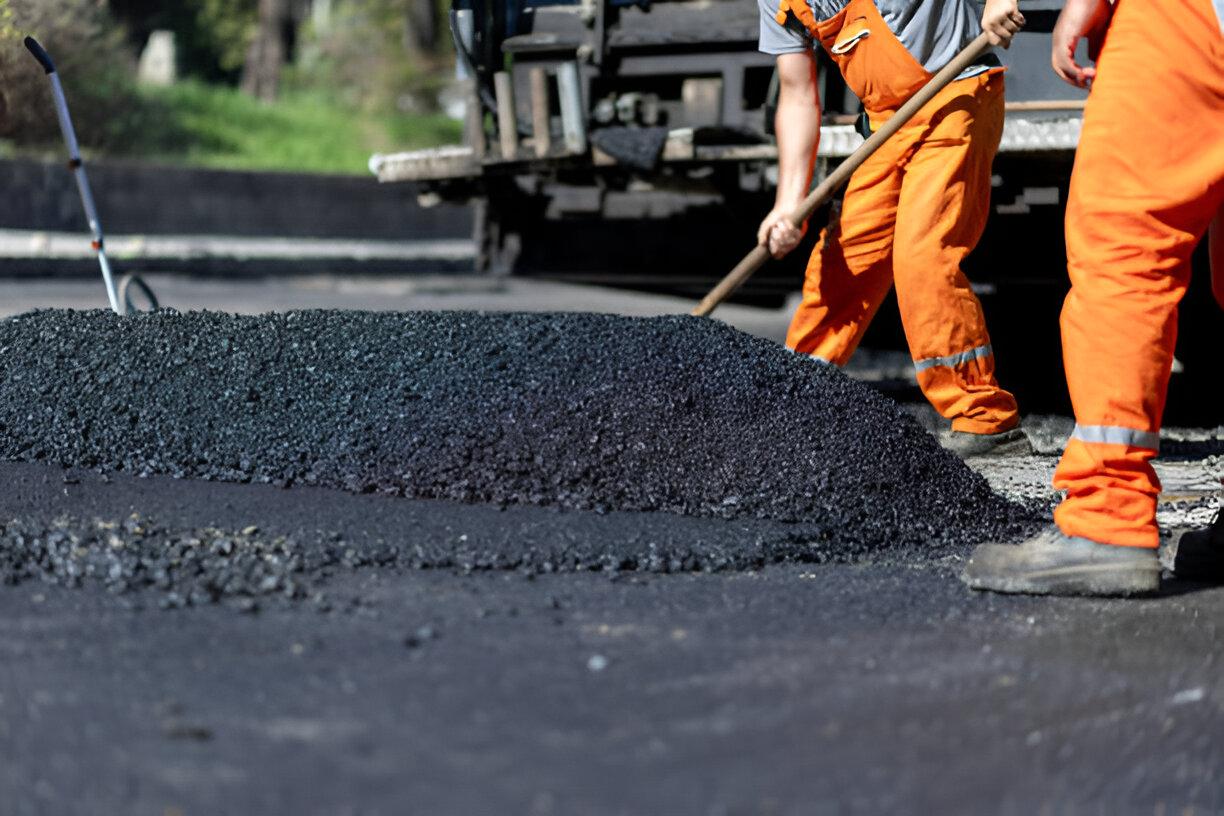Tarmac and Asphalt: What’s Best for Your Surface Project?

When it comes to resurfacing a driveway, installing a car park, or repairing a private road, the big question most people face is this: tarmac or asphalt?
They may look similar on the surface, but these two materials are actually quite different in how they perform, what they cost, and how long they last. Choosing the right one could mean the difference between a smooth, long-lasting surface—or a costly repair a few years down the line.
So, let’s clear up the confusion and help you make a smart, informed choice—with a little help from the pros at Steve Collins Surfacing.
What is Tarmac?
Tarmac, short for tarmacadam, is a paving material made by mixing crushed stone (aggregate) with tar, a thick, black substance traditionally derived from coal.
The mixture is heated, spread, and compacted to form a solid surface. While tarmac has been largely replaced by asphalt in many applications, it’s still a popular choice for residential driveways, country lanes, and low-traffic paths thanks to its classic appearance and reliable performance.
What is Asphalt?
Asphalt is similar in appearance but quite different in composition. Instead of tar, it uses bitumen, a by-product of oil refining, as the binding agent. This makes asphalt more flexible, durable, and easier to maintain than tarmac.
It’s used for everything from motorways and airport runways to retail car parks and commercial estates. If you're after strength and long-term value, asphalt is a serious contender.
Tarmac vs Asphalt: What’s the Difference?
| Feature | Tarmac | Asphalt |
|---|---|---|
| Binder | Tar | Bitumen |
| Texture | Coarser | Smoother |
| Durability | Good for light use | Excellent for heavy use |
| Flexibility | Low | High |
| Maintenance | Needs more frequent upkeep | Easier, quicker repairs |
| Cost | Slightly more | More cost-effective |
| Eco-Friendliness | Less recyclable | Highly recyclable |
Bold the Heading of the Second Table using Markdown language.
Durability: Which Lasts Longer?
Asphalt wins when it comes to long-term resilience. Its flexibility allows it to handle everything from temperature swings to heavy traffic without cracking.
Tarmac is tough but tends to become brittle over time. That means it’s more prone to cracking and erosion, especially under heavy vehicles or harsh weather.
So if you want a surface that’ll stand the test of time, asphalt is the better bet.
Cost: Which One is More Affordable?
While prices can vary based on the size of the project and site conditions, asphalt generally comes out cheaper—especially over time.
Tarmac might cost slightly more to install and usually requires more maintenance, which can add up. Asphalt’s longevity and lower upkeep often make it a more cost-effective choice overall.
Steve Collins Surfacing offers competitive pricing for both options—and always provides honest advice based on your specific needs and budget.
Ease of Maintenance
Let’s face it: no surface is completely maintenance-free. But when it comes to fixing problems like cracks or potholes, asphalt is far easier to repair.
You can patch asphalt quickly and often without replacing large sections. Tarmac, on the other hand, can be a bit more of a challenge to repair cleanly.
If long-term convenience is a priority, asphalt wins again.
Curb Appeal: What Looks Better?
This one comes down to personal preference.
-
Tarmac gives off a classic, textured appearance. It blends well with rustic or traditional homes.
-
Asphalt provides a smooth, deep-black finish that looks clean and professional—ideal for modern driveways or business premises.
Both can look great when installed correctly. And with Steve Collins Surfacing, you’re guaranteed a flawless finish no matter which you choose.
Environmental Impact: Which is Greener?
Asphalt takes the lead here. It’s one of the most recycled construction materials in the world. Old asphalt can be reheated, reprocessed, and reused—reducing waste and demand for new materials.
Tarmac is less commonly recycled and more difficult to repurpose due to its tar content.
At Steve Collins Surfacing, sustainability is a priority. That’s why they offer recycled asphalt options for clients who want an environmentally conscious solution.
Where Tarmac Shines
Despite being overshadowed by asphalt in some areas, tarmac still has plenty of value. It’s a great choice for:
-
Private driveways
-
Rural footpaths
-
Estate roads and farm access routes
-
Properties with traditional or older styling
It’s hard-wearing and blends nicely with natural surroundings, making it ideal for quieter, scenic areas.
Where Asphalt Excels
Asphalt is perfect for:
-
Public and private roads
-
Retail or commercial car parks
-
Urban driveways
-
Schools, hospitals, and business parks
Its strength, smoothness, and durability make it the go-to choice for heavy-duty surfaces with frequent use.
Installation and Curing Time
Both tarmac and asphalt are laid hot and rolled flat. Asphalt tends to set faster, often becoming usable within 24–48 hours. Tarmac may take a little longer, depending on weather and ground conditions.
If you're on a tight schedule, asphalt is usually the quicker option.
So... Tarmac or Asphalt? Final Verdict
Here’s the quick recap:
-
Pick tarmac for traditional aesthetics, light use, and smaller areas.
-
Choose asphalt for heavy traffic, durability, quicker curing, and lower maintenance costs.
No matter what you go with, the real key to a surface that lasts is proper installation. That’s why working with experts like Steve Collins Surfacing is essential. They bring years of experience, quality workmanship, and honest advice to every single job.
Still Deciding? Let Steve Collins Surfacing Help
Not sure which one is right for your project? That’s what we’re here for.
The friendly team at Steve Collins Surfacing is happy to offer a free consultation, walk you through your options, and provide a quote with no pressure and no jargon—just straight, honest answers.
Get in touch today and let’s build something solid together.





